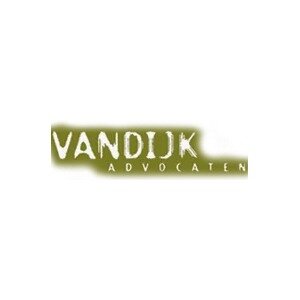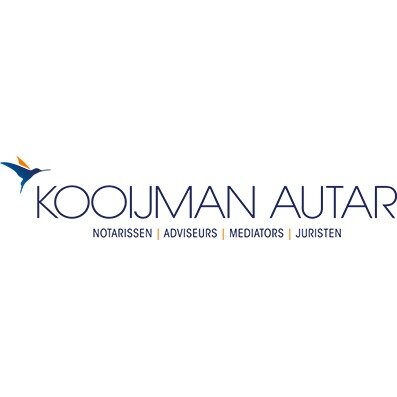Best Elder Abuse Law Lawyers in Rotterdam
Share your needs with us, get contacted by law firms.
Free. Takes 2 min.
List of the best lawyers in Rotterdam, Netherlands
About Elder Abuse Law in Rotterdam, Netherlands
Elder abuse law in Rotterdam, Netherlands, is designed to protect the elderly from physical, emotional, and financial abuse, as well as neglect. These laws ensure that older adults are treated with dignity and are safeguarded against exploitation and harm. The Netherlands generally emphasizes the protection of vulnerable populations and upholding their rights through a combination of civil and criminal law provisions. In Rotterdam, there is a commitment to addressing elder abuse through preventive measures, awareness programs, and legal recourse options.
Why You May Need a Lawyer
Individuals may require legal assistance in elder abuse matters for various reasons. If you suspect an elderly person is being abused, whether through physical harm, emotional abuse, or financial exploitation, you may need a lawyer to help set legal actions in motion. Lawyers can also assist with navigating the complexities of reporting abuse or neglect and representing the interests of the abused in court. Moreover, legal counsel is crucial when pursuing restraining orders or holding abusers accountable through civil litigation.
Local Laws Overview
In Rotterdam, and the wider Netherlands, several key legal aspects are relevant to elder abuse. The Dutch Civil Code includes provisions for guardianship and protective measures for adults who cannot take care of themselves or their interests. Notably, the Penal Code criminalizes acts of abuse, neglect, and exploitation. Moreover, the Law on Institutions for Mental Welfare and Care for the Disabled provides guidelines for ensuring the safety and care of individuals residing in care facilities. Local policies often emphasize multidisciplinary approaches, involving collaboration between healthcare, legal, and social services.
Frequently Asked Questions
What constitutes elder abuse in Rotterdam?
Elder abuse encompasses physical, emotional, and financial abuse, as well as neglect or abandonment. It can occur both in care settings and at home.
How can I report suspected elder abuse in Rotterdam?
Suspicions of elder abuse can be reported to local authorities, such as the police, healthcare providers, or adult protective services, who will investigate the claims.
Are there specific legal protections for the elderly in care homes?
Yes, there are regulations and monitoring systems in place to protect elderly individuals in care homes, ensuring their rights and safety are upheld.
What should I do if I suspect financial abuse of an elderly relative?
If you suspect financial abuse, it is important to gather evidence and contact a lawyer with experience in elder law to initiate legal proceedings and stop the abuse.
Can elder abuse be prosecuted under criminal law in the Netherlands?
Yes, elder abuse can be prosecuted as a criminal offense, with penalties including fines and imprisonment for perpetrators.
Is legal aid available for victims of elder abuse?
Legal aid may be available for victims who cannot afford a lawyer. This can be accessed through the Legal Aid Board, which provides subsidized legal assistance based on income levels.
Can an elderly person appoint someone to make legal decisions on their behalf?
Yes, under Dutch law, an elderly person can appoint a legal guardian or power of attorney to make decisions on their behalf, typically through the notarial process.
What rights do elderly individuals have if they face neglect in a care facility?
Elderly individuals have the right to safe and proper care. Any neglect should be documented, and complaints can be filed with the inspectorate responsible for healthcare.
How do I choose a lawyer specialized in elder abuse in Rotterdam?
It is advisable to select a lawyer with expertise in elder law and experience with similar cases. Contact the Dutch Bar Association for recommendations.
Are there any awareness programs regarding elder abuse prevention?
Yes, local organizations and government initiatives often conduct awareness programs to educate the public and professionals about preventing elder abuse.
Additional Resources
Here are some resources and organizations that can assist those in need of legal advice on elder abuse in Rotterdam:
- Local Police: For immediate threats or incidents of elder abuse.
- Legal Aid Board: Provides information and access to subsidized legal assistance.
- The Inspectorate for Health Care and Youth: Monitors and ensures standards in care facilities.
- Nederlands Elder Abuse Help Line: Offers support and advice to victims of elder abuse.
- Municipal Health Services (GGD): Provides preventive healthcare services and resources.
Next Steps
If you or someone you know needs legal assistance regarding elder abuse in Rotterdam, the first step is to consult with a lawyer who specializes in this field. Gather all relevant information and documentation related to the case. If necessary, contact the Legal Aid Board to determine eligibility for subsidized legal services. Act swiftly to ensure the safety and rights of the elderly person involved, and engage with local resources and authorities to address the issue comprehensively.
Lawzana helps you find the best lawyers and law firms in Rotterdam through a curated and pre-screened list of qualified legal professionals. Our platform offers rankings and detailed profiles of attorneys and law firms, allowing you to compare based on practice areas, including Elder Abuse Law, experience, and client feedback.
Each profile includes a description of the firm's areas of practice, client reviews, team members and partners, year of establishment, spoken languages, office locations, contact information, social media presence, and any published articles or resources. Most firms on our platform speak English and are experienced in both local and international legal matters.
Get a quote from top-rated law firms in Rotterdam, Netherlands — quickly, securely, and without unnecessary hassle.
Disclaimer:
The information provided on this page is for general informational purposes only and does not constitute legal advice. While we strive to ensure the accuracy and relevance of the content, legal information may change over time, and interpretations of the law can vary. You should always consult with a qualified legal professional for advice specific to your situation.
We disclaim all liability for actions taken or not taken based on the content of this page. If you believe any information is incorrect or outdated, please contact us, and we will review and update it where appropriate.












